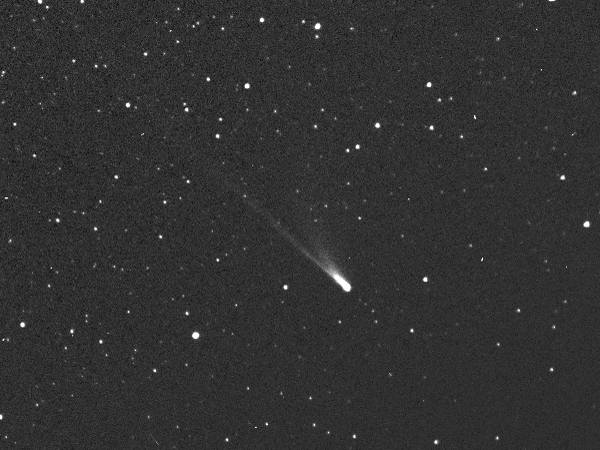Southern Delta Aquarid meteor shower peaked Tuesday
Broadcast live streaming video on Ustream
Meteorologist/Science Writer
Tuesday, July 29, 2014, 1:07 PM - Although we're still exactly two weeks shy of the famous Perseid meteor shower, which is one of the best meteor showers of the year, Tuesday was particularly favourable for checking out the peak of a minor summertime shower - the Southern Delta Aquarids.
This meteor shower, which began around the middle of July and continues into August, reaches its peak on the nights of July 28 and 29 each year. Observers under the clearest, darkest skies can see up to 20 meteors per hour during these nights, and with there being just a sliver of a waxing crescent moon in the sky (which should fully set by about 10 p.m. local time), it should leave the rest of the night for meteor watching.
Some interesting facts that set this meteor shower apart from others: 1) there are actually two Delta Aquarid meteor showers - the Southern Delta Aquarids, which are going on now, and the Northern Delta Aquarids, which take place more in August; 2) both showers apparently originate from the same object, but their 'radiants' - the point in the sky the asteroids appear to radiate out from - are shifted slightly off from one another; and 3) the comet that these showers originate from could, possibly , be an alien visitor to our solar system.
 |
| Comet 96P/Machholz 1, c/o Wikimedia Commons |
When comets show up, quite often claims show up at the same time talking about alien spaceships flying towards Earth, as happened with Comet ISON back in the fall of 2013. However, Comet 96P/Machholz 1 could really be an alien. First discovered in 1986, and going around the Sun every 5.24 years, astronomers have noticed that 96P/Machholz 1 has a very strange chemical makeup. Compared to the multitude of other comets studied, this one has far less carbon and cyanogen (both of which tend to turn comets green). It's possible that the cyanogen was simply cooked out of the comet after repeated orbits, since it's a sungrazing comet that swings very close to the Sun on each orbit. It's also possible that it came from the outer reaches of the Oort Cloud, thus much farther out from the Sun than most other comets. A third possibility is that the comet originated in a different star system that had lower carbon levels in its protoplanetary disk, and was ejected from that star system to made a journey of hundreds of thousands to millions of years long, before reaching the solar system and was caught in our Sun's gravity. Each of the three possible explanations is likely listed from most-likely to least-likely there, but none can be ruled out (and it's just cool to contemplate an alien comet).
If you're able to get outside to see the meteor shower from this strange comet, the meteors should streak from south-southeast to north-northwest (roughly), but just look straight up for the best view. You'll want to be away from any major sources of light pollution (so a trip out into the country might be needed for the best view), and check the forecast to see if it will be cloudy in your area. With the Perseids having already started (and peaking on August 12-13), there are already meteors from this shower in the sky, but they can be distinguished by the fact that they generally streak by from a different direction (starting east to west, after midnight).
If you happen to miss the shower, don't fret too much, as viewing should still be good tomorrow night, and probably for the rest of the week. If you really want to see them, but can't get outside, or its cloudy, or your area is so inundated by light pollution that you have difficulty even seeing stars, NASA is hosting a livestream from their Marshall Space Flight Center in Huntsville, Alabama, starting at 9:30 p.m. Eastern Time. The UStream channel is embedded at the top of the article.
If you do catch the shower (on any night, for that matter), and manage to capture images or video, please report it in the comments and share the results with us here at The Weather Network.



